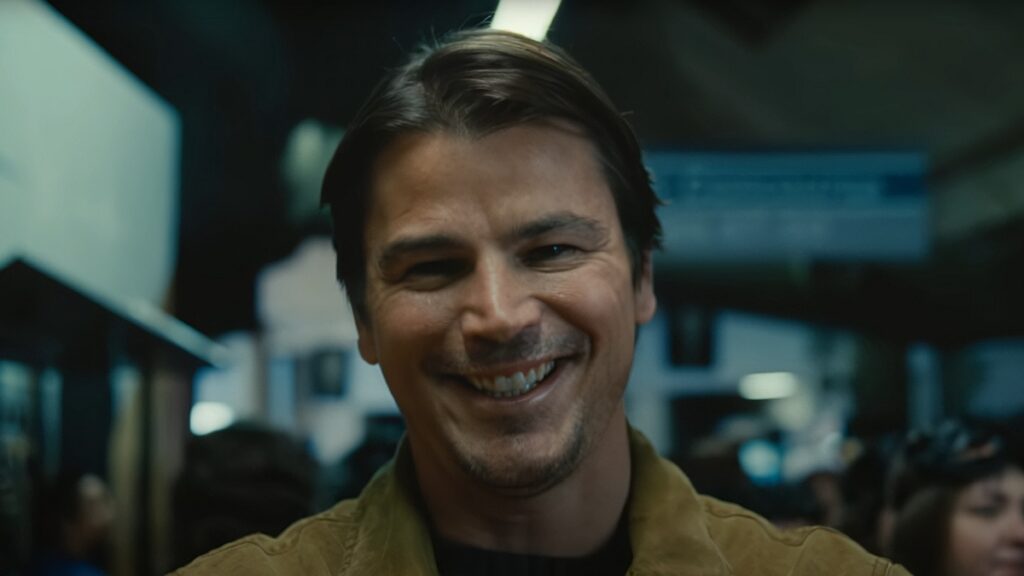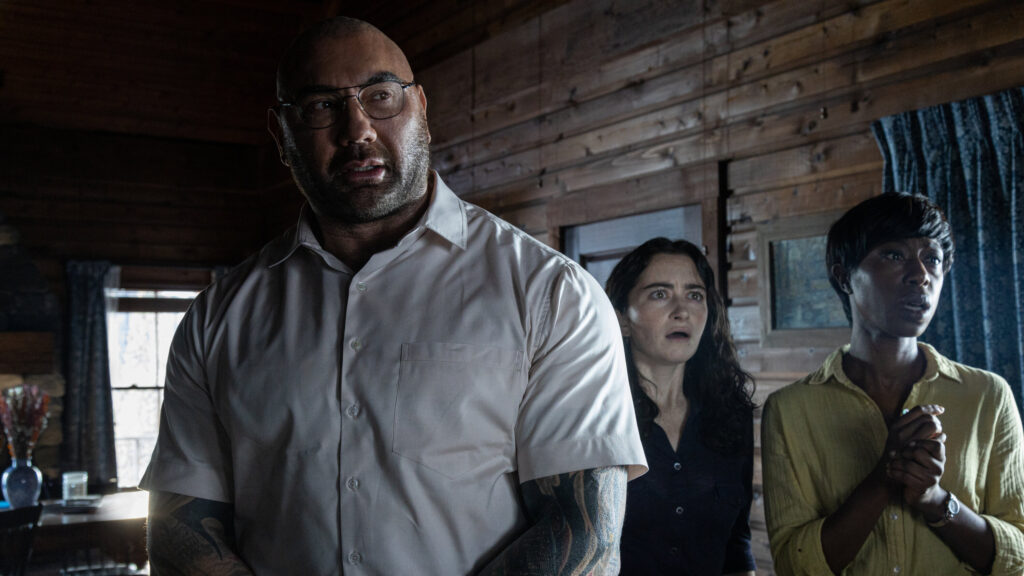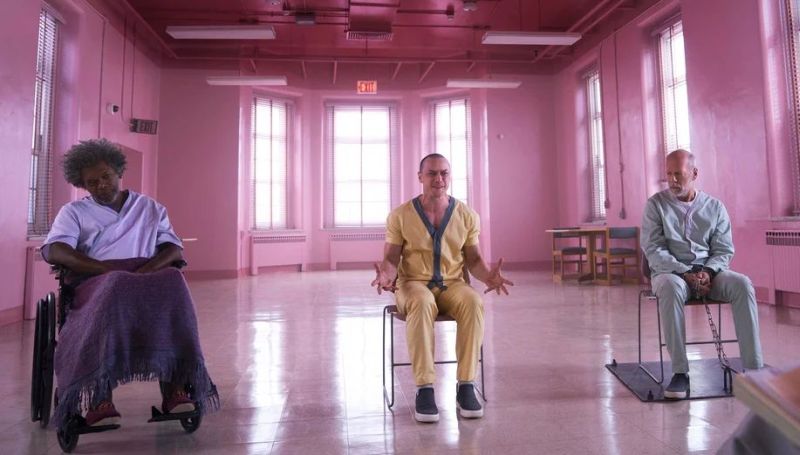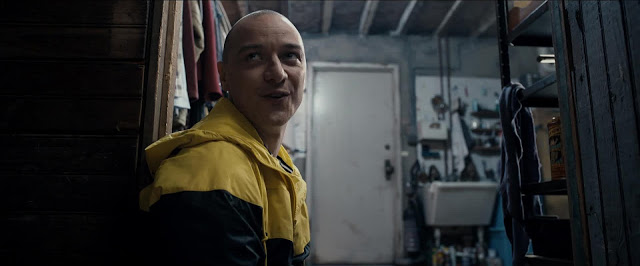Trap: Catch Me If You Stan

M. Night Shyamalan fancies himself a philosopher as well as a showman. Sure, he makes genre movies designed to rattle your nerves, but he also wants to dig under your skin and force you to wrestle with his pet themes and ideas. The Sixth Sense, The Village, and Old are all spellbinding constructions, embroidered with aesthetic flair and clockwork precision, but they’re also treatises on the fragility of parenthood—the quixotic dream of just keeping your kids safe. With his prior feature, the well-intentioned but unsatisfying Knock at the Cabin, Shyamalan skewed the balance too far toward the intellectual, building a meditative puzzle about humanity and faith but neglecting to supply the requisite thrills. His follow-up, Trap, tilts decidedly in the opposite direction. It is not among his most thought-provoking works, but as a specimen of pure entertainment, it is what the kids call a banger.
One of those kids is Riley (Ariel Donoghue), an obsessive fan of beloved girl-pop star Lady Raven (Saleka Night Shyamalan, the director’s daughter). Riley is elated that her father, Cooper (a never-better Josh Hartnett), has rewarded her academic excellence by taking her to a Lady Raven matinee show in downtown Philadelphia. For his part, Cooper seems happy to be there, basking in his daughter’s ebullience, even as he can’t help but notice the arena’s curiously robust police presence… Read More




